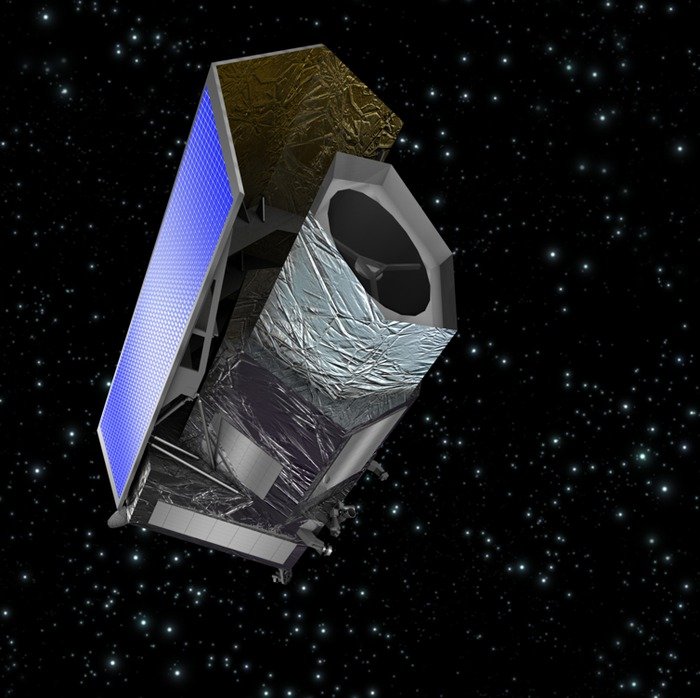The Euclid spacecraft, shown in this artist's impression, is scheduled to launch in 2020. Credit: ESA/C. Carreau
GREENBELT, Md., Feb. 12 (UPI) -- Three U.S. science teams have been selected by the European Space Agency to take part in a dark energy science mission, NASA said Tuesday.
The ESA has selected three NASA-nominated science teams to participate in their planned Euclid mission, a space telescope designed to probe the mysteries of dark energy and dark matter.
NASA's Goddard Space Flight Center in Greenbelt, Md., will lead one of the teams, a NASA release said.
The other two U.S. science teams are led by Ranga-Ram Chary of the Infrared Processing and Analysis Center at the California Institute of Technology in Pasadena, Calif., and Jason Rhodes of NASA's Jet Propulsion Laboratory, also in Pasadena.
Euclid will observe up to two billion galaxies occupying more than one-third of the sky with the goal of better understanding the contents of our universe, including both dark energy and dark matter.
Dark matter is invisible, neither emitting nor absorbing light, but it exerts a gravitational pull, while dark energy is thought to exert a repulsive force that pushes matter apart.
Scientists say they believe dark energy may be responsible for expanding the universe at ever-increasing speeds, an observation that earned the 2011 Nobel Prize in physics.
Euclid, set to launch in 2020, will investigate the nature of dark energy and dark matter by accurately measuring the accelerated expansion of the universe.















